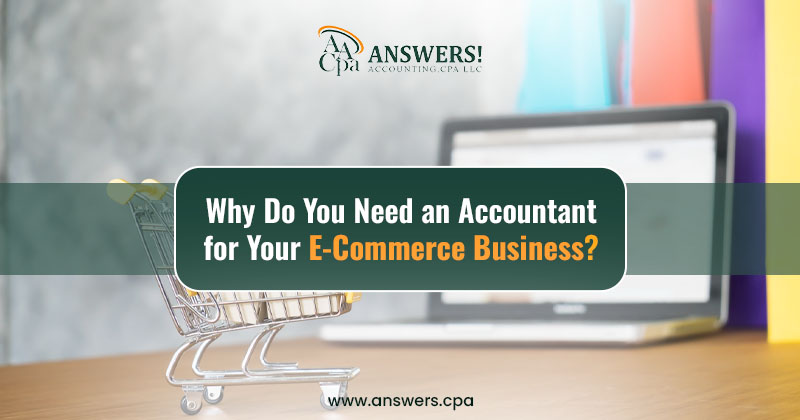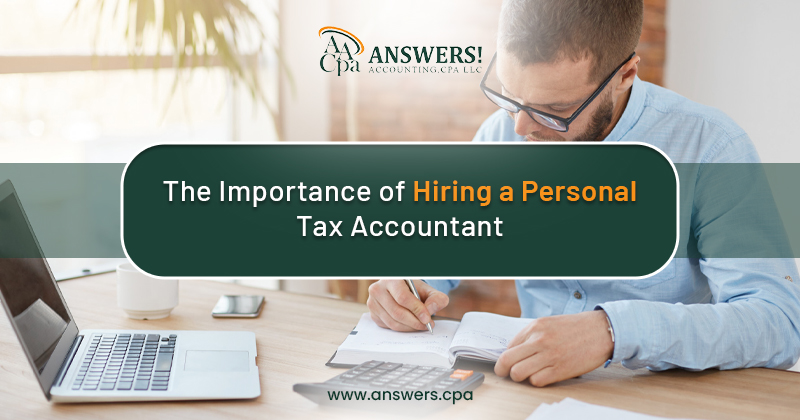Ecommerce Accountant: Why Your Business Needs One
Running an e-commerce business can be exciting. You get to sell products online, reach customers all over the world, and grow your brand. But behind the scenes, managing the money side of your business can be tricky. That’s where an accountant comes in.
In this blog, we’ll explain why hiring an accountant for your e-commerce business is a smart move. We’ll keep things simple, using examples and tips to help you understand the value an accountant brings to your online store.
1. Help With Sales From Many Places
Most e-commerce stores sell on more than one platform. You might sell on Amazon, Shopify, Etsy, eBay, or your own website. Each platform has different fees, payment methods, and rules. Trying to track all this on your own can be confusing.
An accountant knows how to handle multi-channel sales. They can bring together all your sales data in one place. This helps you see where you are making the most money and which platform is costing you more in fees.
Example: Let’s say you made $5,000 on Shopify and $4,000 on Amazon last month. But after fees, shipping, and returns, your profit from Amazon is only $2,000, while Shopify gave you $3,500. An accountant will help you spot that Shopify is more profitable.
2. Keep Track of Sales Tax Rules
If you sell to customers in different states or countries, you may need to charge and pay sales tax. But tax rules are not the same everywhere. Some states in the U.S. require sales tax. Others don’t. Countries like Canada and the UK have their own rules too.
An accountant understands these rules. They help you figure out when and where to charge sales tax. They can also file the tax reports for you, so you don’t have to worry about missing deadlines or paying fines.
Example: If you sell $10,000 worth of goods in Texas, you may owe sales tax there. An accountant makes sure you collect it from your customer and pay it to the state on time.
3. Track Your Inventory and Product Costs
Inventory is a big part of any e-commerce business. You need to know how much stock you have, what it costs, and when to reorder. If you don’t track your inventory properly, you could run out of items or hold too much, tying up your money.
An accountant can help you manage inventory and calculate the cost of goods sold (COGS). This tells you how much it costs to make or buy the products you sell.
Example: If you buy 100 t-shirts at $5 each and sell them for $15, your profit per shirt is $10. But if you also pay $2 for shipping and $1 for packaging, your COGS is $8. An accountant will help you track all these costs.
4. Manage Your Cash Flow
Cash flow means the money going in and out of your business. Even if you make a lot of sales, you could run into trouble if you don’t have enough cash to pay your bills.
An accountant watches your cash flow and helps you plan ahead. They can tell you when it’s safe to spend money or when you need to save. This keeps your business stable and ready to grow.
Example: You made $20,000 this month, but you also owe $5,000 to a supplier and need to pay $3,000 in taxes. An accountant can help you budget so you have enough to cover everything.
5. Give You Better Financial Reports
Good decisions come from good data. An accountant can create clear reports to show how your business is doing. These include profit and loss statements, balance sheets, and cash flow statements.
These reports help you understand where your money is going. They also make it easier to plan for the future, get a loan, or talk to investors.
Example: A profit and loss statement might show that your biggest expense is advertising. With this info, you might decide to change your ad strategy or cut costs.
6. Make Tax Time Easier
Filing taxes for an e-commerce business is not simple. You may have sales tax, income tax, and payroll tax if you have employees. You also need to track expenses so you can claim deductions.
An accountant will make sure everything is ready when tax time comes. They help you file the right forms and claim all the deductions you’re allowed. This saves you money and stress.
Example: If you use a part of your home for your business, you might be able to deduct part of your rent or internet bill. An accountant will know the rules and help you claim it.
7. Help You Grow Your Business
Accountants don’t just look at the past. They help you plan for the future. Whether you want to add new products, expand into new markets, or hire more people, an accountant can help you set goals and make smart choices.
They can also help you set a budget, forecast your income, and find ways to improve profits.
Example: If you want to open a warehouse in another state, your accountant can help you figure out how much it will cost and if you can afford it.
8. Save You Time
Running a business takes time. Every hour you spend trying to do your own accounting is time you could use to market your products or serve customers.
Hiring an accountant frees up your time. You can focus on growing your business while they handle the numbers.
Example: Instead of spending hours trying to balance your books or fix an error in your software, your accountant can do it quickly and correctly.
9. Help You Get Loans or Investors
If you want to borrow money or bring in investors, you need to show that your business is healthy. Lenders and investors want to see clean financial records, income statements, and growth plans.
An accountant prepares these for you. They can also help you write business plans and forecasts.
Example: If you apply for a $50,000 loan, the bank will want to see your past earnings and future plans. Your accountant will have all the right paperwork ready.
10. Stay Ahead of the Competition
E-commerce is a fast-moving world. If you want to stay ahead, you need to make smart, quick decisions. An accountant gives you the financial knowledge to do that.
They can tell you what products are your best sellers, which ones are costing you money, and where you can improve.
Example: Your accountant might notice that one product has high return rates and low profits. With that info, you might decide to stop selling it and focus on better items.
Make the Smart Choice for Your E-Commerce Business
Managing an e-commerce business takes more than just good products and a nice website. You need strong financial support to grow and succeed. Hiring an accountant helps you understand your numbers, avoid mistakes, and plan for the future.
If you’re ready to grow your e-commerce business, hiring an accountant is a smart step. They can save you time, reduce your stress, and help your business reach its full potential. Answers! Accounting CPA has a team of expert accountants who understand the unique needs of e-commerce businesses. Reach out today to find out how we can help you build a stronger, more successful online store.
FAQs
1. Do I need an accountant if I use software like QuickBooks or Xero?
Yes. While accounting software helps with tracking, an accountant interprets the data, handles taxes, gives strategic advice, and ensures accuracy.
2. What kind of taxes does an e-commerce business need to worry about?
You may need to pay sales tax, income tax, and possibly payroll tax if you have employees. Rules vary by state and country, and an accountant ensures compliance.
3. Can an accountant help if I sell on multiple platforms like Amazon and Shopify?
Absolutely. Accountants can combine data from various platforms, track fees and revenue, and give you a full picture of profitability.
4. How can an accountant improve my cash flow?
They help you understand when to spend, when to save, and how to avoid shortfalls. This keeps your business running smoothly even during slower months.
5. Is hiring an accountant expensive for a small e-commerce business?
Many accountants offer flexible pricing. Plus, the money they help you save on taxes, mistakes, and better decisions often outweighs their cost.







